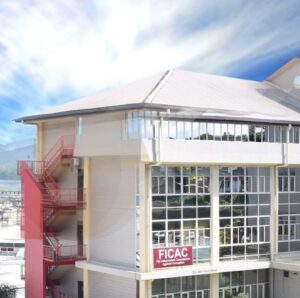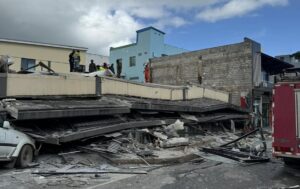Samoa (SPREP) – Conservation management of the rich biodiversity across the Pacific Islands region is at the core of the 10th Pacific Islands Conference on Nature Conservation and Protected Areas. An important event, this will help protect our valuable ecosystem services that the world depends upon.
The conference will take place in New Caledonia at the Tjibaou Cultural Centre, from 19 to 24 April this year, and will bring together stakeholders, experts, researchers, communities, projects, organisations and institutions from the Pacific islands region.
“Our Pacific biodiversity is what we are dependent upon for our way of life,” said Juney Ward, the Ecosystem and Biodiversity Officer of the Secretariat of the Pacific Regional Environment Programme (SPREP).
“It protects us, feeds us, builds up our economies, is at the heart of our livelihoods and at the centre of our cultural traditions. We must do all we can to conserve and manage our Pacific biodiversity and that’s what we’re aiming to strengthen at the Pacific’s largest nature conservation conference this year.”
Many important development industries for Pacific islands, such as tourism, agriculture, forestry and fisheries, rely on the Pacific’s biodiversity and ecosystem services.
They are also the most important source of food, livelihoods, health and water security for Pacific island communities.
This underpins the significance of effective conservation and management of biodiversity in providing resilient and viable adaptation responses to changing climates and environment in the region.
The conference theme Nature Conservation Action for a Resilient Pacific highlights the need for urgent action now, the need to think beyond what is currently being done, and the importance of being guided by the needs of future generations.
Six thematic streams will be explored at the conference and help shape the important stories we have to share: People and nature conservation action; Economic development and biodiversity conservation; Safeguarding priority sites, including cultural heritage; Safeguarding species and genetic diversity; Threats to biodiversity, and; Monitoring, governing and financing nature conservation action.
“We must identify and eliminate the most significant threats to our biodiversity, together with our Members and our partners, we must do this if we are to be successful in halting biodiversity loss and extinction in our Pacific region which is accelerating,” said Karen Baird, Threatened and Migratory Species Adviser at the Secretariat of the Pacific Regional Environment Programme (SPREP) and one of the conveners for the thematic stream, ‘Threats to biodiversity’.
The Pacific islands region has experienced an alarming rate of decline in biodiversity: 33% of reef forming corals and over 40% of amphibian species are under threat, with the average abundance of native species in most major land-based habitats decreasing by at least 20% since 1990.
A major concern is that habitat loss could become irreversible with many species and ecosystems threatened, such as mangroves and terrestrial forests, all been driven by a range of development pressures. This decline in biodiversity around the Pacific has also contributed to high levels of loss globally.
“We have identified biodiversity hotspots and created protected and conserved areas in our region to protect and conserve native and endemic species and enhance the health and resilience of important ecosystems that we rely on.Setting aside areas for the protection of key ecosystems will ensure that they continue to support key biodiversity and provide ecosystem services vital to the well-being of Pacific peoples., For example, keeping water catchments and rivers in healthy state contributes to a clean and abundant supply of water for Pacific villages. We need to safeguard these so their ecosystem services help support our Pacific people,” said Vainuupo Jungblut, Protected Areas Officer at SPREP and one of the conveners for the thematic stream,
‘Safeguarding priority sites’.
The conference will also review the current Framework for Nature Conservation and Protected Areas 2014 – 2020 endorsed at the 9th Pacific Islands Conference on Nature Conservation and Protected Areas in 2013 which brought together over 800 participants.
The conference will be hosted by the Government of New Caledonia, SPREP and the Pacific Islands Roundtable for Nature Conservation for which the Oceania Regional Office of the International Union for Conservation of Nature is the current Chair.
To find out more about the conference, including how to register online, please visit https://www.pacificnatureconference.com or email pacificconference2020@sprep.org
Read More Pacnews









